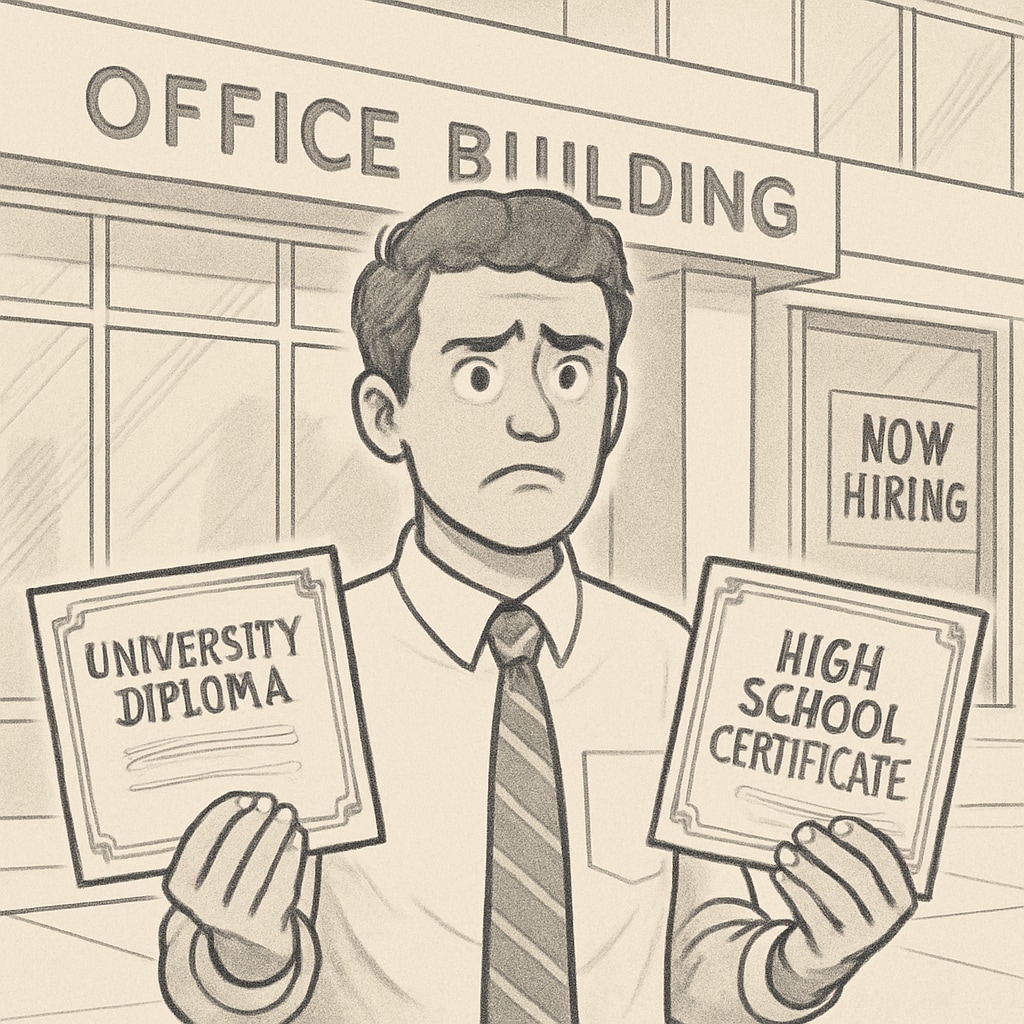In Arizona, a peculiar employment policy mandates that job applicants must hold either a high school diploma or a GED (General Educational Development) certification, regardless of their higher-level educational achievements, such as university degrees. This policy, which seemingly undermines the value of advanced education, has sparked debates about the fairness of employment practices and the disconnect between educational qualifications and workforce requirements. The issue highlights critical concerns regarding education hierarchy and employment discrimination.

Why Arizona’s Employment Policy Raises Eyebrows
Arizona’s employment regulations have created a paradox where advanced education is overshadowed by basic qualifications. For example, an individual with a master’s or doctoral degree may still be deemed ineligible for certain positions unless they can present proof of high school education. This policy is particularly puzzling because higher education typically presupposes the completion of secondary education or its equivalent.
Critics argue that such requirements fail to account for the educational journey of an applicant and instead impose rigid criteria that may exclude highly qualified individuals. For example, a university graduate who lost or never obtained their high school diploma due to unique circumstances would face unnecessary barriers. This raises questions about whether the policy inadvertently promotes employment discrimination against those who have successfully surpassed basic educational milestones.
The Disconnect Between Education and Workforce Needs
One of the primary issues with this policy is its disconnect from modern workforce realities. In today’s job market, employers often prioritize practical skills, experience, and higher education over basic qualifications like a high school diploma. Yet Arizona’s policy seems stuck in an outdated framework that does not reflect the value of advanced education in fostering innovation and expertise.
For example, in STEM fields (Science, Technology, Engineering, Mathematics), a university degree often serves as the minimum qualification for entry-level roles. Requiring a high school diploma alongside a university degree not only seems redundant but also undermines the educational investment made by job seekers. As a result, Arizona’s policy risks alienating a talent pool that could otherwise contribute significantly to its economy.

Potential Consequences of the Policy
The implications of Arizona’s employment requirements extend beyond individual frustration. Here are some potential consequences:
- Employment Discrimination: The policy may disproportionately affect international students, refugees, or others who pursued higher education without standardized high school qualifications.
- Brain Drain: Talented professionals may choose to leave Arizona for states with more inclusive employment practices.
- Economic Stagnation: By restricting access to skilled workers, the state risks slowing economic growth and innovation.
As a result, there is a growing call for policymakers to reconsider these criteria to ensure they align more closely with workforce demands and educational advancements.
How Can Arizona Improve?
To address the inherent flaws in its employment policy, Arizona could adopt more flexible and inclusive practices. Recommendations include:
- Recognition of Higher Education: Automatically consider university degrees as sufficient proof of educational qualification.
- Context-Based Assessment: Allow exceptions for applicants with unique circumstances, such as international credentials.
- Alignment with Workforce Needs: Collaborate with industry leaders to ensure that employment criteria reflect the skills and education required for modern job roles.
By implementing these changes, Arizona can foster a fairer and more efficient employment system that values diverse educational backgrounds.
Conclusion: The Need for Inclusive Employment Policies
Arizona’s employment policy, which prioritizes high school diplomas over university degrees, reveals significant flaws in how educational qualifications are valued. This approach not only creates barriers for qualified candidates but also reflects a broader disconnect between education evaluation and workforce needs. As a result, there is an urgent need for the state to reassess its policies to ensure inclusivity and fairness while meeting the demands of a rapidly evolving job market.
Advanced education should be seen as an asset, not a liability. By recognizing the value of university degrees and adopting more nuanced employment criteria, Arizona can pave the way for a more equitable and competitive labor environment.
Readability guidance: The article uses concise paragraphs, active voice, and transitions such as “for example,” “as a result,” and “however.” Lists are employed to summarize key points effectively, ensuring clarity and accessibility for readers.


